A celebrated actor who toured America and Europe, Edwin Booth even once saved the life of Abraham Lincoln's son — but his legacy was forever tarnished just months later when his brother assassinated the president.
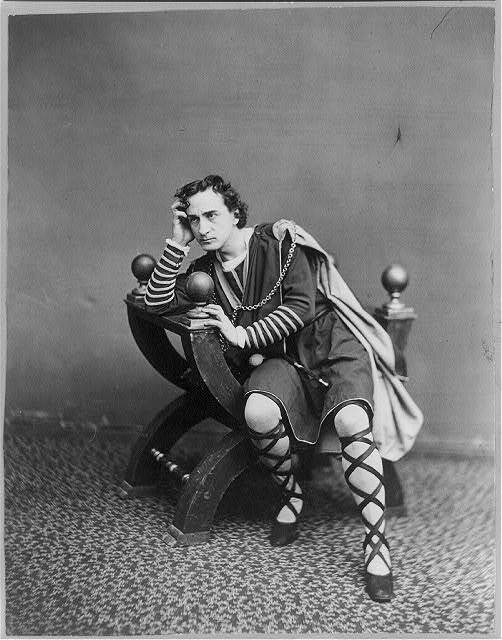
Library of CongressEdwin Booth as Hamlet, a role he played more than 100 times.
When most Americans think of the name “Booth” they think of John Wilkes, the infamous assassin who fatally shot President Abraham Lincoln on April 14, 1865. But for much of the 19th century it was actually his older brother, Edwin Booth, who was more well-known.
Not only was Edwin Booth a famous actor, but he was considered to be one of the most talented thespians of his day. “Mr. Booth has had no rival as a tragedian among those actors who use our language,” The Atlantic wrote in 1893 as it bemoaned his death. “And it is equally plain that there is to-day not even a candidate for his vacant place.”
But Edwin Booth is not remembered for his skill, looks, or even for how he played Hamlet for 100 consecutive nights between 1864 and 1865. He’s remembered instead as a footnote in history, an aside sometimes mentioned in relation to John Wilkes Booth and the Lincoln assassination.
This is the story of Edwin Booth, the famous brother of the infamous assassin John Wilkes Booth.
Growing Up In An Acting Family
Born on November 13, 1833, Edwin Booth seemed destined to act from the beginning. His father Junius Booth was not only an actor but one of the greatest Shakespearean actors of his day. The poet Walt Whitman even called Junius “the grandest histrion [actor] of modern times.”
But Junius was also a deeply complicated man. He struggled with mental illness and often acted erratically. The Folger Shakespeare Library reports that he once broke down in the middle of a performance of King Lear and demanded to be taken to a “lunatic hospital.” He also attempted suicide several times, including by jumping off a steamboat into the Atlantic Ocean.
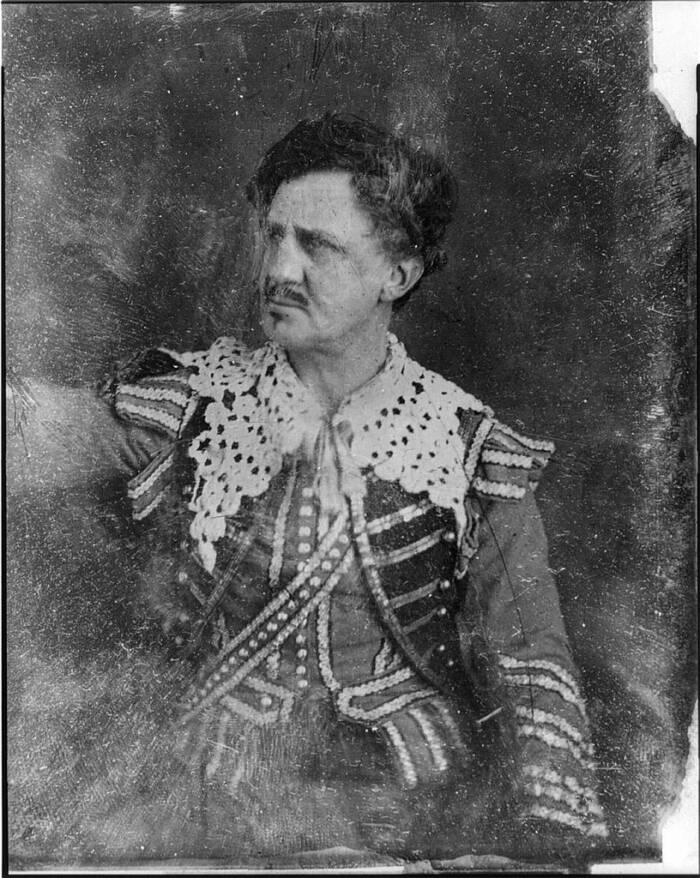
Library of CongressEdwin Booth’s father Junius Booth was a talented actor but also an alcoholic who suffered from mental health problems.
What’s more, Junius was haunted by a scandal as dramatic as the plays he starred in. He’d left his first wife and son in England to come to America in 1821 with another woman, Mary Ann Holmes, with whom he’d have ten children. These included Edwin, born in 1833, and John Wilkes, born in 1838.
As the boys grew up, Junius encouraged a rivalry between them. The Folger Shakespeare Library explains that John physically resembled his father but Edwin had Junius’ talent. So Junius picked Edwin, at the age of about 13, to accompany him as he toured the country. John, on the other hand, was raised as a “gentleman of leisure” and sent to boarding school.
Neither boy was happy with this arrangement. Edwin was stuck caring for his alcoholic father as they traveled hundreds of miles across the country and he envied his brother, who had an easier life at school. Meanwhile John, who yearned to be an actor like Junius, envied Edwin.
When Junius died in 1852, however, both of his sons leapt to claim the family’s acting legacy. Edwin acted in the North; John, on his older brother’s insistence, acted only in the South. And it didn’t take long for theater audiences to decide which of Junius Booth’s sons had his acting talent.
Edwin Booth And John Wilkes Booth’s Divergent Paths
In 1853, a San Francisco newspaper raved that Edwin Booth gave a “masterly performance” as Hamlet and prophesied that he’d have a “triumphant career on the stage.” Meanwhile, a less enthusiastic reviewer wrote that John Wilkes Booth “mispronounces many words which he articulates distinctly… These errors in style are grievous, and they are not trivial.”
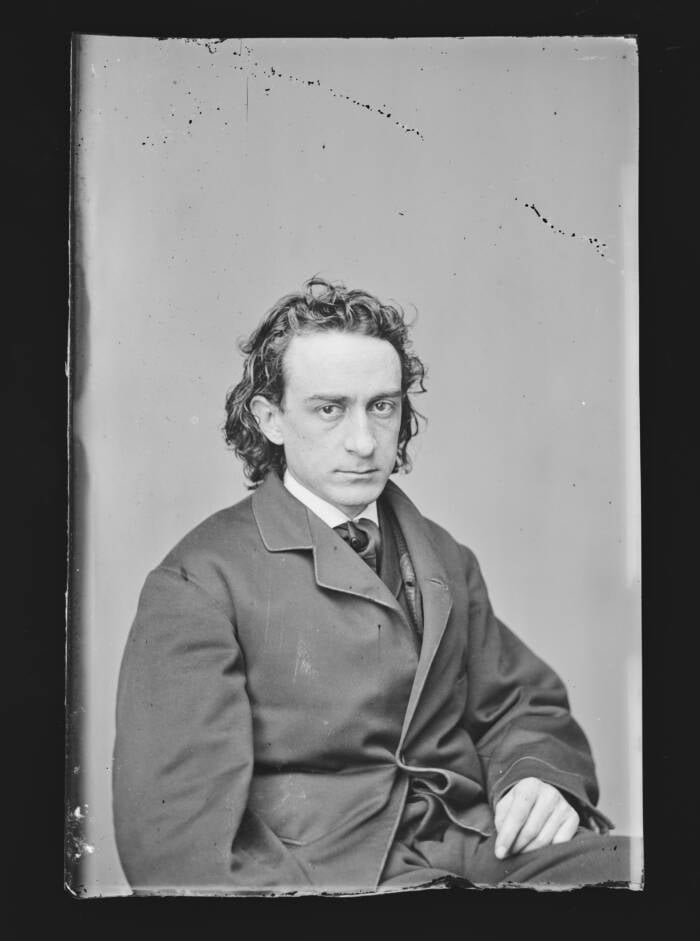
National Portrait Gallery, Smithsonian Institution/Frederick Hill Meserve CollectionEdwin Booth sitting for a portrait circa 1860-1870.
Indeed, as Edwin Booth dazzled audiences in New York, Boston, Philadelphia, and Washington D.C., John Wilkes Booth had more on his mind than acting. Tensions were building between the North and South over the issue of slavery, and John found himself firmly on the side of the pro-slavery factions. In 1859, he even joined a Richmond militia so that he could witness the execution of John Brown, who had tried to incite a slave uprising.
John Wilkes Booth saw something to admire in John Brown, however. Appearing to appreciate Brown’s theatricality, he wrote, according to The Atlantic: “John Brown was a man inspired, the grandest character of this century!”
The brothers’ divergent politics — Edwin supported the president, Abraham Lincoln, whereas John despised him — came to a head in November 1864, more than three years after the Civil War began. Then, Edwin, John, and their brother Junius Jr. appeared onstage together for the first and only time in New York City.
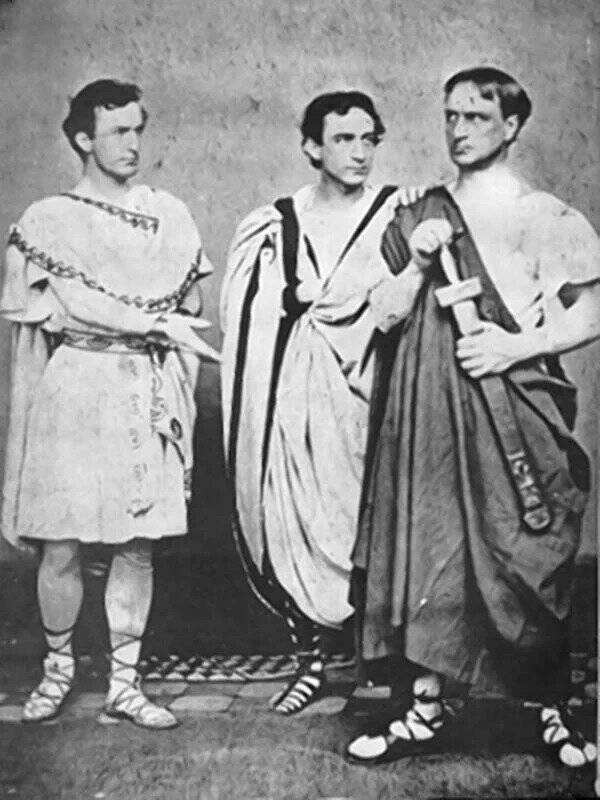
Public DomainFrom left to right: John, Edwin, and Junius Jr.
During their performance of Julius Caesar, fire bells suddenly rang out. And though there was no fire in the theater, it later became clear that Confederate agents had tried to set the city aflame.
This led John to profess his support for the Confederate cause. Edwin, furious, threw his brother out of his house.
Subsequently, John Wilkes Booth would do more than support the Confederate cause. Starting in March 1865, he began to plot first to kidnap, and then to kill, the president.
How Edwin Booth Saved The Life Of Lincoln’s Son
Just a few months before his brother would assassinate Abraham Lincoln, Edwin Booth had a run-in with another Lincoln, the president’s son Robert. In late 1864 or early 1865, he saved Robert’s life after he nearly fell onto a train track in New Jersey.
Had Robert died, it would have added to the Lincoln family tragedy — Mary and Abraham Lincoln had already lost their sons Eddie and Willie. But Edwin was there in time to save Robert’s life.
“I was twisted off my feet, and had dropped somewhat, with feet downward, into the open space, and was personally helpless, when my coat collar was vigorously seized and I was quickly pulled up and out to a secure footing on the platform,” Robert later recalled, according to History Net. “Upon turning to thank my rescuer I saw it was Edwin Booth, whose face was of course well known to me, and I expressed my gratitude to him, and in doing so, called him by name.”
Robert could not have guessed then — no one could — that Edwin Booth’s less famous brother was plotting to assassinate his father, the president.
Indeed, John Wilkes Booth had gathered a number of conspirators, including Lewis Powell, Mary Surratt, and John Surratt, in his plot to kill the president and destabilize the Union government.
Edwin Booth And The Lincoln Assassination
On April 14, 1865, Abraham Lincoln and his wife Mary attended a performance of Our American Cousin at Ford’s Theatre in Washington D.C. At 10:15 p.m., John Wilkes Booth snuck into Lincoln’s box, shot the president in the back of the head, and leapt onto the stage below, crying: “Sic semper tyrannis!” (“Thus ever to tyrants!”)
The next morning at 7:22 a.m., President Abraham Lincoln was pronounced dead. And the manhunt for his assassin began.
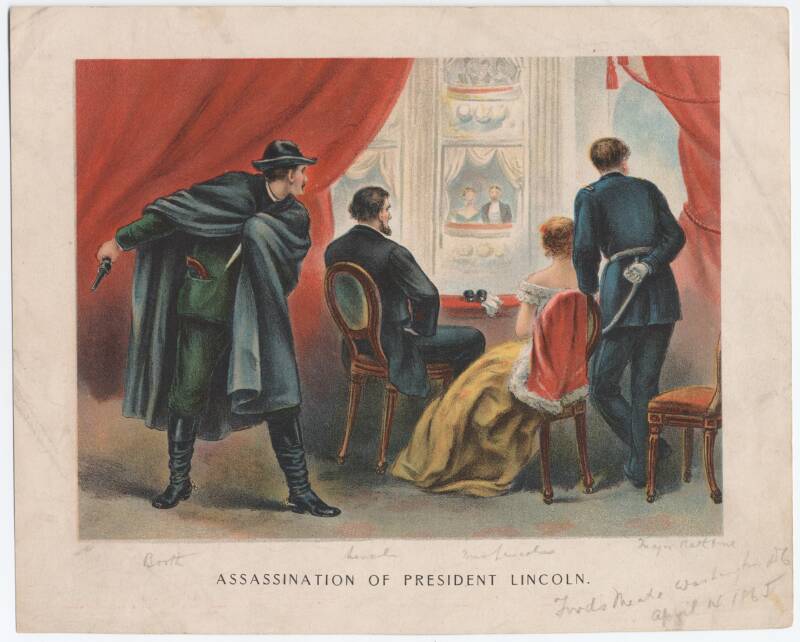
Public DomainA depiction of the Lincoln assassination on April 14, 1865. The president died the next day on April 15.
As the shock of the Lincoln assassination reverberated across the nation, it perhaps struck no one as deeply as Edwin Booth. In an April 15 letter to his friend Colonel Adam Badeau Edwin wrote: “What shall become of me… Abraham Lincoln was my president… I voted and for HIM… the beautiful plans I had for the future — all blasted now… I am half crazy now.”
On the same day, as reported by The New York Times, Edwin also penned a letter to his friend Henry C. Jarrett, the manager of the Boston Theatre:
“The news of the morning has made me wretched, indeed, not only because I have received the unhappy tidings of the suspicions of a brother’s crime, but because a good man and a most justly honored and patriotic ruler has fallen in an hour of national joy by the hand of an assassin. While mourning in common with all other loyal hearts, the death of the President, I am oppressed by a private woe not to be expressed in words.”
Edwin’s friends flocked to his side in fear that he might go insane. And Edwin’s “private woes” deepened when Union troops captured and killed John Wilkes Booth on April 26, 1865 after a 12-day manhunt.
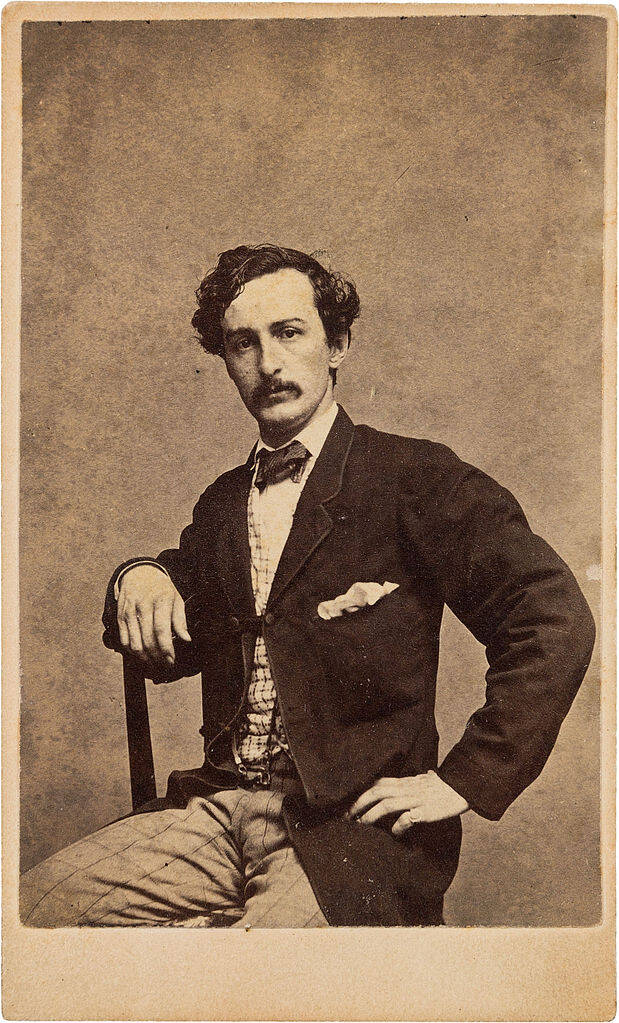
Public DomainJohn Wilkes Booth was killed after a 12-day manhunt. His co-conspirators were later hanged.
In one fell swoop, Edwin had lost his brother, his family name, and his acting career. History Net reports that one New York newspaper declared that no Booth would be permitted to appear on an American stage ever again. But despite the heavy blows, Edwin collected himself enough to pen an open letter to the nation in June 1865. He wrote:
“It has pleased God to lay at the door of my afflicted family the life-blood of our great, good, and martyred President. Prostrated to the very earth by this dreadful event, I am yet too sensible that other mourners fill the land. To them, to you, one and all go forth our deep unutterable sympathy; our abhorrence and detestation for this most foul and atrocious of crimes.”
In the aftermath of the Lincoln assassination, Edwin Booth retired from acting. But his life — and his career — would have a second act.
The Final Days Of Edwin Booth
Though Edwin Booth was never entirely the same after the Lincoln assassination and his brother John’s death, he did mount a return to the stage in 1866. And after a rocky start, Edwin found success as an actor once again. He performed in England and Germany in the 1880s to great acclaim, and took his final bow as Hamlet in 1891 in New York City.
Two years later, on June 7, 1893, Edwin Booth died at the age of 59. The New York Times reported that he was “stricken with the illness which ultimately caused his death” (a stroke) that April. He developed general paralysis and kidney problems before losing consciousness in early June.
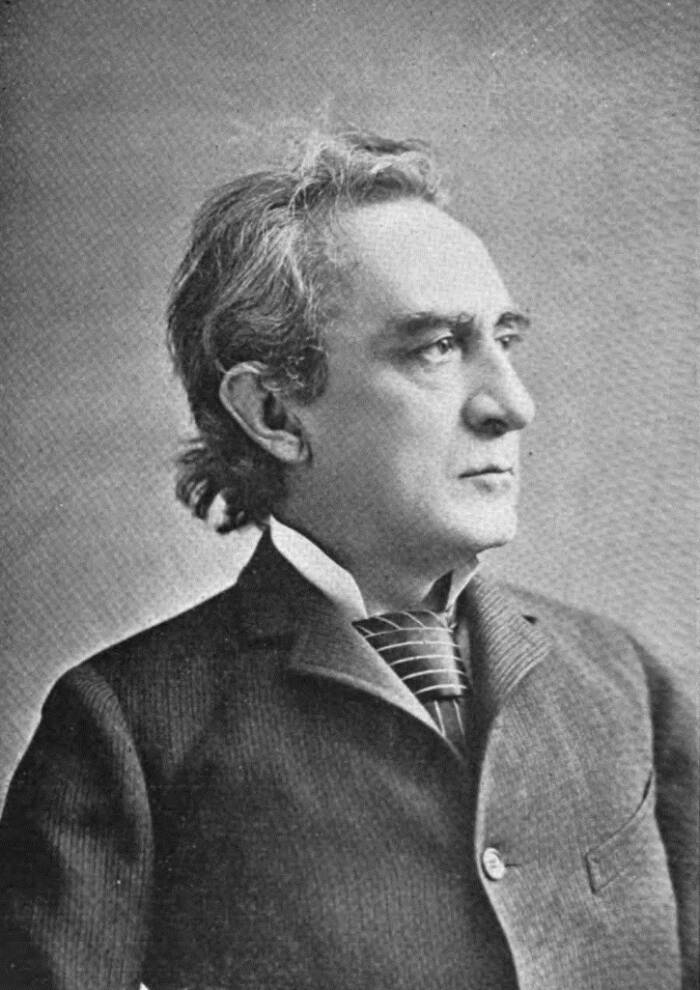
Public DomainEdwin Booth — and the Booth name — is forever linked to the Lincoln assassination.
“Such a peaceful ending to so distinguished a career precluded any closing scenes,” The New York Times reported. “There were no last words. There was not even a farewell look… Mr. Booth’s life had gone out.”
With that, Edwin Booth became a footnote in American history. He’s best remembered today not for his skill onstage but as the brother of an assassin. When John Wilkes Booth shot and killed President Abraham Lincoln in 1865, he forever spattered the Booth name in blood.
After reading about Edwin Booth, discover the bizarre story of Boston Corbett, the Union soldier who killed John Wilkes Booth in Virginia. Or, learn about Henry Rathbone, the Union soldier who failed to stop John Wilkes Booth during the Lincoln assassination — and later went insane.





